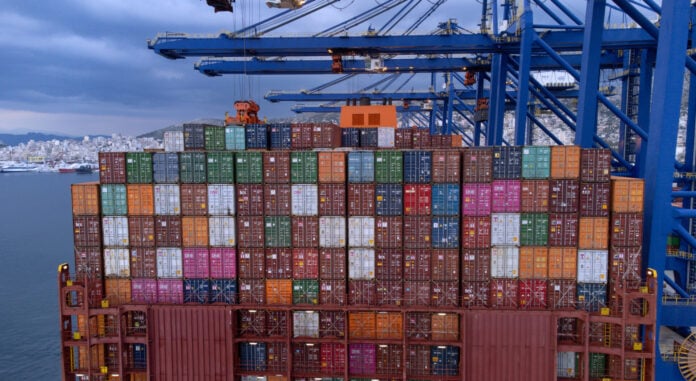Targeted support measures for export sectors affected by adverse trade disruptions, such as US tariffs, are proposed by a study by the State Budget Office in Parliament.
The study highlights the need to redirect exports to new markets, take temporary relief measures and strengthen financing tools for businesses without access to liquidity.
The analysis focuses on the tariffs imposed by the US in 2018-2019, as part of President Trump’s policy. Greek exports were affected unevenly: some sectors recorded a decline, others increased, while several showed no significant change.
The study examines 20 key sectors exporting to the US. In 2024, exports from these sectors reached 1.98 billion, i.e. 76% of all Greek exports to the US.
Which exports were affected – and which were not
Key findings:
Reduced exports in 8 sectors (e.g. cement, fish, electrical appliances, processed fruit): losses ranged from 15% to 85%.
Increased exports in 5 sectors (e.g. aluminum, fruit, pharmaceuticals): evidence of successful adjustment or absorption of the impacts.
Negligible changes in 4 sectors (e.g. steel, aviation).
Greek exports to the US
Despite the fact that the US accounts for approximately 5% of Greek exports and 1% of GDP, it is the most important export destination outside the EU. Greek exports to the US increased from 630 million in 2000 to 2.6 billion in 2024. During the tariff period, however, a decline was recorded due to other factors, such as the pandemic and currency fluctuations.














